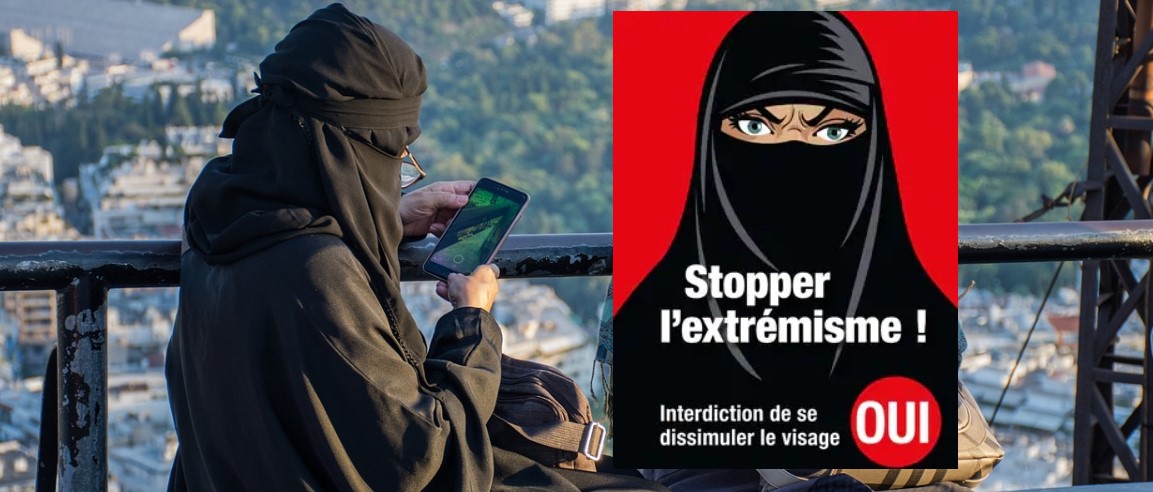The Islamic full-face veil will soon be banned in Switzerland, as is the case in France, Bulgaria, Austria and The Netherlands. The question was the subject of a vote organized on Sunday March 7, in Switzerland. According to information from BFM TV, the text was carried by the Democratic Union Centre party (UDC).
It is clearly a much less centrist party than its name suggests, since it is frequently classified as right-wing or far-right. The ballot, which has provoked very important debates in recent days, was announced particularly tight. The Swiss political scientist Claude Longchamps even estimated that the “no” to the ban would prevail, by a small margin. At the beginning of the afternoon, on Sunday, it was finally the opposite which occurred. According to RTBF, more than 52 percent of the Swiss had voted in favor of the ban.
Posters from those parties against the ban read: “No to an absurd, useless and Islamophobic ‘anti-burqa’ law.” A 2019 Federal Statistical Office survey in Switzerland revealed that 5,5 percent of the Swiss population were Muslims, mostly from Bosnia. Ines El-Shikh, spokeswoman for a Muslim women’s group, told news agency AFP: “Besides being useless, this text [for the proposal] is racist and sexist.” The leader of the Green party echoed her sentiments, saying it would only add fuel to the fire.
As often elsewhere in Europe, the vote did not explicitly concern the Islamic full veil. Swiss citizens were in fact called upon to vote on the ban on concealing one’s face in public spaces. It is very frequently used pretext to ban the full veil, without specifically targeting Muslims.
Jean-Luc Ador, spokesperson for the Swiss People’s Party (SVP) and the “yes” campaign, also said that Muslims were not “the target of the initiative”. The political leader simply intended “to defend the values of our civilization”. However, in its communication, the SVP made no secret of the real objective of the ballot. The posters showed fully veiled women, crossed out with slogans: “Stop radical Islamism” and “stop extremism”.
The government had claimed that the number of women who wear the burka in Switzerland is between 95 and 130, suggesting that it was not really necessary to institute a ban for such a small number of people. But Ardor responded in an interview with SWI: “I would be curious to know on what basis the government is making these estimations.”
According to initial projections, the Swiss wanted a nationwide ban on full-face veils in the referendum, according to the Basler Zeitung.
This dress code will be incorporated into the constitution and will apply on the streets, in restaurants and shops. There is an exception for religious meeting rooms however. Such a ban already existed in the Swiss cantons of St. Gallen and Ticino.
According to the SRF extrapolation, the turnout had been around 51 percent. In 2009, 57,5 percent of the population had already joined the popular initiative “Against the building of minarets”. Both these votes were initiated by the Egerking Committee, which, according to its own statements, organizes “resistance against the claims to power of political Islam in Switzerland”.
With Switzerland’s system of direct democracy, a national vote can take place on any issue as long as it gathers 100 000 signatures from its 8,6 million inhabitants. To prevail, these initiatives require support from a majority of voters nationwide, and from a majority of federal Switzerland’s 26 cantons, six of which count as half-cantons in votes.
















